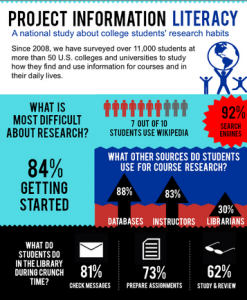Avoiding Research Pain
805-words…Summary + Tips
Earlier last year, I re-read Finding Facts Fast by academic librarian Alden Todd, who wrote about students who lacked interest and attention to detail when handling their research assignments for
various classes.
Reviewing Todd’s story, written in 1992, I realized his account isn’t limited to students, and I wondered for the first time why. Was it that so many people dislike the tasks associated with research.
For instance, business consultants point out that many aspiring entrepreneurs fail to research their ideas before start up. A habit noted by author Richard Nelson Boles in What Color Is Your Parachute?
And career counselors say job applicants, including upper management, have been known to appear for
interviews with companies they know nothing about because they failed to investigate the company in question.
Curiosity compelled me to do a little research on my own. So, I sought out opinions. “Why do students dislike research to such a great extent?” I asked librarians in an out of the academic arena.
Meanwhile, I searched through scholarly databases for answers. I learned more than half of college students are not even reading their assignments.
Opinions primarily were that many students didn’t want to take the time to do the work. For many, technology was the new sheriff in town, and there was an expectation of instant results.
I decided the answer was probably a combination of weak research skills and digital overload. My attention turned elsewhere until last week when I came across a newly released study of first-year
students enrolled in six US colleges and universities.
The study’s purpose was to investigate the research habits of freshmen, especially when students are making the transition from finding information for high school assignments to completing college-level research work.
Project Information Literacy (PIL), an ongoing research study conducted in collaboration with the University of Washington’s Information School, has uncovered eye-opening and revealing facts that expose hidden issues behind a longstanding problem in our educational system.
Summary:
Too many students transfer from high school into college with little understanding,
training, or even access to library research tools. They discover they are ill-prepared for the major differences and rigorous workload required in college.
For example, Harvard has more than 1,000 databases for students to choose from yet many have had experience with only a two in high school, and the student may or may not have had any experience using those.
PIL found that this was a common occurrence regardless of the college in question. And there were numerous other issues uncovered which caused stress and confusion for the new students.
Not only were they overwhelmed with thousands of new resources, but there was a problem with wrestling with time-consuming tech glitches.
How to think and ask questions is an important skill needed to tackle research assignments. But critical thinking skills were not taught either in many cases.
Technology has exposed, amplified, worsened, and created a new set of challenges, but the digital age is not the underlying cause of a longstanding systemic problem.
A third of the freshmen that enroll in U.S. colleges and universities this fall will not return to campus next year, according to the study.
Problems documented by PIL point to a history of flawed curriculum, and bad educational policies. Circumstances, which cannot be blamed on students.
If a student lacks skills, knowledge, and confidence and is overwhelmed, they will find ways to avoid
stressful situations whenever possible.
Little wonder some students cope by using the same set of information resources–Google search, course readings, and library databases such as JSTOR–to complete their research assignments throughout their college years.
One wonders what research avoiding potential entrepreneurs experienced as students.
experiences they encountered.
Finding effective ways to overcome skill set issues is key. Identifying what you dislike about a task can help uncover solutions.
Different ways to say the R word.
Examine
Experiment
Explore
Fact-Find
Groundwork
Inquire
Investigate
Study
Sources
Freshman Study PDF
Projectinfolit.org
Project Information Literacy Research Report: “Learning the Ropes”
December 4, 2013
Alison J. Head, Ph.D.
https://projectinfolit.org/publications/
College Students Don’t Know How to Research
Huffington Post.com
College Students Don’t Know How To Research, Study Shows | HuffPost College
Wall Street Journal.com
Librarians push back to protect jobs
http://blogs.wsj.com/metropolis/2013/08/21/city-librarians-push-back-to-protect-jobs/
Article Summary: Some public schools are laying off middle and high school librarians. Or plans are underway to replace the librarians, who have master’s degrees in library science, with aides, according to the Wall Street Journal.
Views: 78
